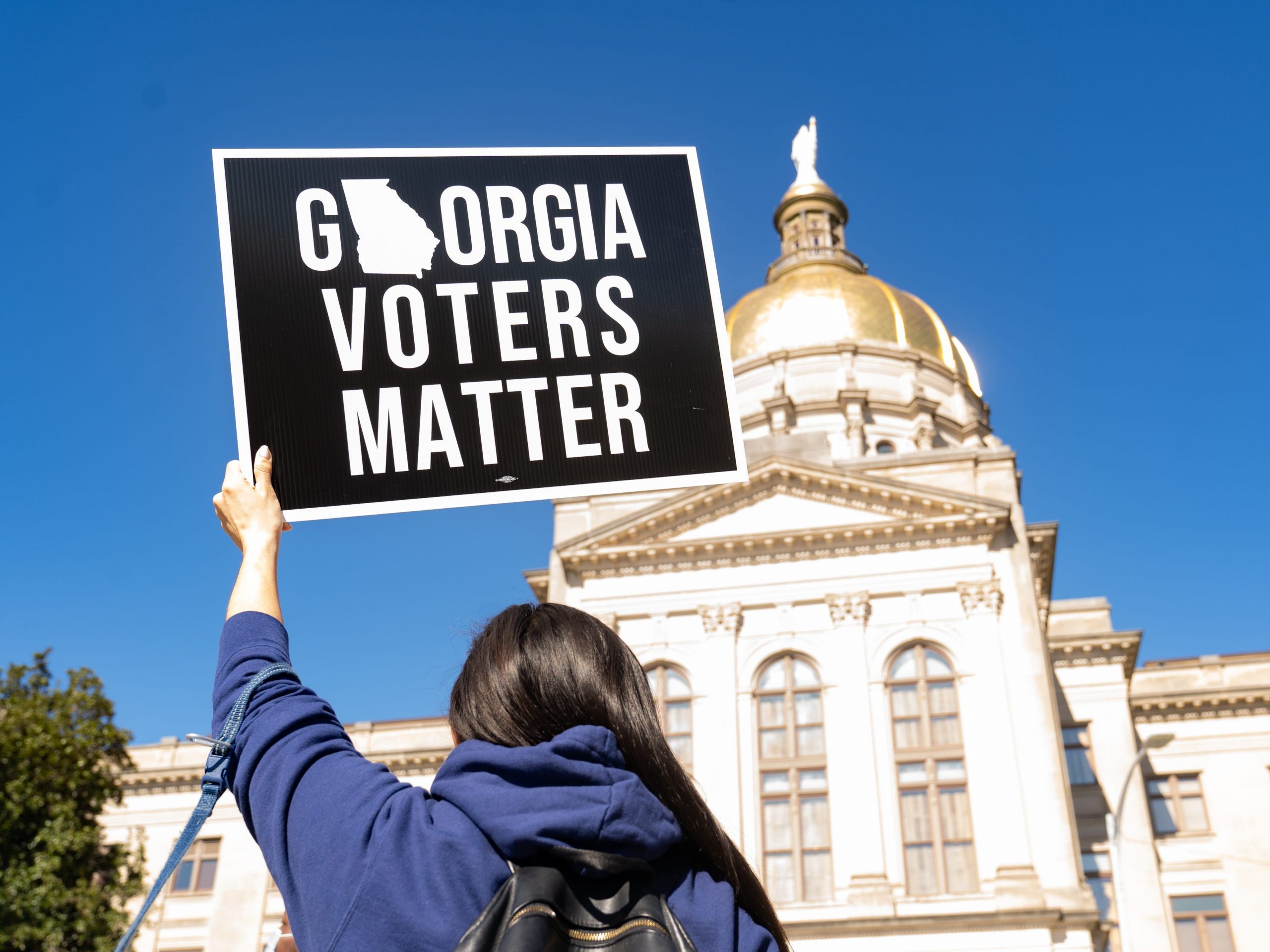
Megan Varner/Getty Images
- Georgia Gov. Brian Kemp signed a sweeping election reform bill into law Thursday.
- The bill expands early voting and requires an ID number for absentee voting, among other things.
- Here are six notable changes to elections and voting included in the legislation.
- See more stories on Insider's business page.
After Georgia cast the definitive votes in both the US presidential election and the Senate, GOP Gov. Brian Kemp signed a sweeping election reform bill Thursday that impacts voting procedures and election administration in the state. As Insider's Grace Panetta reported, the Republican-backed bill was passed despite opposition from Democrats who said the law will limit Americans' access to the ballot and restrict voting rights.
Here are some notable changes in the controversial bill.
Absentee voting will now require submitting an identification number in place of signature matching
To apply to vote by mail, voters will have to provide an identification number from a state-issued ID, like a driver's license or state ID card. Voters will also have to write that number or the last four digits of their Social Security number on the envelope when they mail in their ballots.
The process will replace signature matching, which Georgia currently uses to verify ballots. Some election officials have said ID numbers are a more objective method, as opposed to having election officials deciding if signatures match.
However, according to the Atlanta Journal-Constitution, around 200,000 Georgia voters lack an ID.
The window for early voting will be expanded in most counties for general elections
In-person early voting dates and times are expanded under the law. The new law requires three weeks of early voting, with voting times scheduled for at least 8 hours and up to 12 hours. Polls are allowed to open as early as 7 a.m. and close as late as 7 p.m.
Weekend voting is also expanded, mandating two Saturdays of early voting and giving counties the option to offer two Sundays of early voting.
The bill makes it illegal for volunteers to deliver food and water to voters
One section of the bill would make it illegal to give money or gifts, including food or water, to people waiting in line to vote. The law is applicable inside a polling place, within 150 feet of a building serving as a polling place, and within 25 feet of a voter standing in line.
The section also says: "No person shall solicit votes in any manner or by any means or method."
Existing Georgia law already prohibits gifting or receiving gifts "for the purpose of registering as a voter, voting, or voting for a particular candidate."
Voting rights advocates say the new rules discourage voters from sticking around in long voting lines. Long lines are particularly a problem in Black communities in Georgia, where a dearth of polling places can turn voting into an all-day affair.
The time between general elections and runoff elections was shortened, as was the early-voting window for runoffs
The bill shortens the time between general elections and runoff elections from nine weeks to four weeks. It also decreases the amount of time for early voting in runoffs, from three weeks to one week.
In Georgia, runoffs occur when no candidate receives more than 50% of the vote, as happened in the 2020 election in both of Georgia's Senate races.
Democrats Jon Ossoff and Raphael Warnock defeated their Republican opponents in runoff elections in January, effectively delivering Democrats a majority in the Senate.
The bill allows for permanent ballot drop boxes, but limits the number counties are allowed to have
Ballot drop boxes were introduced as emergency measures, during the pandemic, but the bill allows some to be made permanent. However, it limits counties to one drop box per 100,000 residents, or one per early voting location, whichever is fewer.
It also requires drop boxes to be placed inside early voting locations.
The legislature will have greater control over how elections are administered
The bill gives the state legislature the power to appoint the chair of the State Election Board, a role that was previously filled by the Georgia secretary of state.
Brad Raffensperger, the current secretary of state, was heavily criticized by President Donald Trump for validating the accuracy of the election despite Trump's unsubstantiated claims of mass voter fraud.
The law also gives the State Election Board control over county election administration.
Have a news tip? Contact this reporter at [email protected].